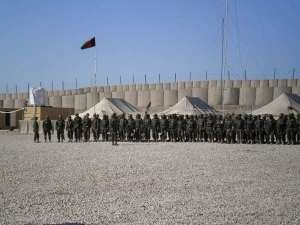The Romanian electricity market has been manipulated in the last year through transactions that were concluded on the OPCOM at variable prices and quantities, the regulator of the energy market (ANRE) states, in a document that BURSA came in possession of.
The document presents the justification note for the new trading rules passed by the ANRE, which will come into effect starting on January 1st, 2015 which no longer allow the signing of contracts for the sale of energy at variable quantities and prices.
According to the document, the ANRE specialists consider: "Operators state that contracts with flexible prices (price formulas) and uncertain quantities should be allowed, because this would encourage long term contracts and the contracting of energy produced by capacities with large output fluctuations, specifically those based on renewable energy sources. The call for bids for a price that in most cases only matters in a proportion of 1% for the end price in the contract, represents a manipulation of the electricity market (it is irrelevant how high or how low the price of the call for bids was, because it has no importance for the parties involved in the contract, but it will leave the wrong impression to the other interested parties and it reduces the degree of transparency of the call for bids in question)".
BURSA recently wrote, in an exclusive report, that energy market operators claim that the ANRE is preventing the growth of the market by making it mandatory to trade electricity at fixed prices and quantities, which will make it impossible to sign long term contracts. On the other hand, the specialists of the ANRE claim that the purpose of signing medium-long term contracts is mostly to guarantee fixed, well-determined prices and quantities, which would allow the budgeting of the revenues/expenses (they are instruments to ensure against the volatility risk). "Any other type of contracts transfer the risk from one party to the other, but in a non-transparent manner, which distorts the market results, with extremely dangerous results to the other participants", the quoted document says.
The representatives of the ANRE gave as an example the low prices that electricity has been selling at lately on the spot market, which according to them, is predominantly caused by the offers of the producers of renewable energy. The latter can afford to offer low prices because they make up part of their costs through the sale of green certificates, according to the quoted source, which emphasizes that "these unrealistic prices threaten however the viability of the standard producers, which contribute to the safe operation of the system".
By promoting the new trading regulation, the ANRE wanted to make it impossible to conclude under the guise of using the PCCB, contracts that were negotiated bilaterally by the parties prior to their signing, thus reinforcing the principle of non-discrimination required by the law.
• The fight goes to court
This conflict between the ANRE and the market participants comes amid a flurry of fines which the regulator levied this year for contracts concluded on the OPCOM, wherein the energy was traded at variable prices and quantities.
The OPCOM, the operator of the Romanian energy market, was sanctioned for the same reason. All of the fines were disputed in court, according to several market sources.
At our request, the representatives of the ANRE yesterday explained to us the reasons behind this wave of sanctions: "Starting with January 2013, the ANRE has disputed the appearance on the PCCB market of a significant number sale offers at the minimum price and, respectively, of buying offers at the highest price, submitted by some of the participants, which stand out through the fact that some of their characteristics (power, quantity, delivery price) do not comply with the definitions described in the Regulation concerning the organized framework for trading the bilateral energy contracts. According to the definition stipulated in the Regulation, both selling and buying offers introduced by the PCCB must comprise the firm specification of the delivery profile (band/peak/trough), delivery power, the quantity of electricity intended for delivery, the delivery period and the price proposed for the beginning of the call for tenders that must include the value of the component for the injection in the network of the transport tariff. The negative effects of the introduction of variable power and price factors in the offers are not negligible. Aside from the fact that they do not comply with the manner in which this market has been built, omitting to specify the power and hence the quantity on offer and/or the modification of the trading price compared to the one initially published in the offer is likely to introduce heavily distorted signals in the market concerning the evolution of the average price on the PCCB, and the concentration indicators calculated by OPCOM SA based on the offered, and traded quantities, respectively".
They have explained to us that that lack of credible reference indexes invalidates one of the most important characteristics of this market - transparency - and negatively influences the decisions concerning the prices offered in the market. Also, the amendment of the quantities in the contract, after its execution has begun involves the ulterior will of the parties, which turns those contracts into bilaterally negotiated contracts outside the centralized market, without meeting the clear conditions set by the Energy Law.
The need to define these characteristics as firm has resulted from the need to ensure the transparency of information, the existence of clear and comparable price signals and the non-discrimination between the participants. Because of these reasons, the information received at the time of the introduction of the offers in the market, whether they are selling or buying offers, must remain unchanged, in the opinion of the ANRE, so as not to mislead participants and to ensure equitable competition conditions on this market.
• The ANRE accuses the OPCOM of having promoted contracts that do not comply with the law and the existing regulations
When asked why they only levied fines in 2014 when that kind of contracts with variable prices and contracts get concluded on the PCCB market since back in 2013, the ANRE officials told us that their correspondence with the OPCOM (the operator of the Romanian energy market) concerning this type of contracts actually began in March 2013.
They are making accusations: "Not only did not the OPCOM report at the time the existence of any anomaly or at the very least of an abnormal behavior in the bidding process of the participants in the PCCB, according to its own oversight authority set through the regulatory framework in effect, as sole operator of the centralized market, but rather has supported, in writing as well as practically, the approach of the participants to introduce variable power offers, and of amending the price starting with the second delivery month according to calculation formulas, respectively. In spite of the repeated warnings of the ANRE about the situation that was created, the OPCOM has continued, throughout 2013, accepting the trading of offers that were not compliant with the regulations, publishing them on its own website and treating them as correct".
In an attempt to eliminate such a situation, the ANRE claims that it has even asked the OPCOM to put a stop to those practices, as the former was the only one habilitated to prohibit the trading of the offers that did not comply with all the requirements of the existing regulations. Given the continuation of the practice in question, the ANRE moved to submitting complaints and levying fines against the participants, as well as against OPCOM SA as operator of the PCCB, according to the quoted sources.
The executives of the ANRE also told us that the OPCOM should have checked the compliance of the offers submitted by the participants in the PCCB concerning the requirements of the legal framework in effect and to reject the non-compliant ones. In the absence of the reporting of the OPCOM, the ANRE has referred the matter to itself following the articles in the press discussing some of the cases that were sanctioned and has taken steps to clarify and resolve the situation that was created, including measure to sanction the people involved, according to the quoted source.
After the repeated solicitations addressed to the OPCOM to comply with the legal and regulatory framework, the ANRE initially only sanctioned the OPCOM, we were told by the ANRE officials, who also mentioned that they thought that, had the market operator fulfilled its obligations correctly, the non-compliant offers proposed by the participants for trading would have been rejected. "This kind of market behavior would have been discouraged, without influencing the characteristics of the PCCB and without requiring the application of sanctions, which do not obviously represent the goal of the activity of the ANRE", the ANRE specialists said.
The ANRE officials told us that the transactions concluded on the PCCB market managed by the OPCOM aren't currently allowed to involve undefined quantities and prices calculated based on formulas either, if the price for the adjudication of the call for bids only has an insignificant weight in the price of the transaction. They have explained that the passing of a new regulation, that would clearly stipulate the requirement to trade energy only at fixed prices and quantities was considered necessary because transparent and non discriminatory mechanisms had to be introduced to conclude the contracts for the processing of fuel, introduced in the law in the form of a definition; because the elimination of the framework agreement from the regulation was necessary, as well as the review of the access to these markets of the network operator, but also because the Authority wants to reduce the possibilities of the market allowing, through abuse, advance agreements and thus, the violation of the principle of non-discrimination.
•
The Commission for Industry and services yesterday announced that it is asking the Department for Energy, OPCOM SA and the ANRE to send in their opinion and the information concerning the "Regulation concerning the organized framework for the trading of bilateral electricity contracts". The synopsis of the talks and the conclusions will be subjected to public debate, in a meeting of the Commission which will be attended by all the participants in the energy market, as well as the ANRE and the Department for Energy, according to a press release sent to our editors. The Commission for Industries and services has requested the submission, by October 1st, 2014, of the points of view and of the proposed amendments considered necessary in the primary and secondary legislation in the sector.



























































